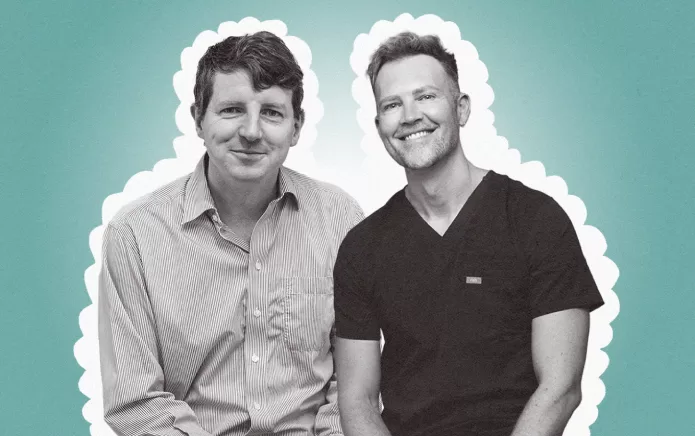“We know we’re going to be heavily scrutinised, we know there’s a lot of interest in it, and so we’ve set it up in the most comprehensive way possible,” the latter explains. “But unfortunately, one of the downsides to that is that it means a lot of expertise which brings a lot of cost, and so we know we’re not accessible to everyone financially and so that does mean that there are many, many people out there who simply have no functioning pathway available to them.”
Kelly highlights that the impending closure of the only NHS gender clinic for children in England and Wales will undoubtedly impact a number of trans people, making services like the Gender Plus Hormone Clinic all the more important – even if the cost is high. “We are a clinician-led team that do this based on how passionate we are about the work and we would love to be able to offer this in a public provision,” he says. “But, with the way things went with [the Gender Identity Development Service (Gids)] and it being closed down and, in a way, those new services seemingly not wanting to take on any of the old Gids staff, it felt like this is the only way that we could continue to offer and use our expertise and make it available to the public.”
Carruthers adds that the team behind the clinic is looking at “different ways” to improve accessibility in the future, for example by providing educational resources and offering the team’s expertise to the NHS. “We’ve also employed a research lead to the team,” he shares, “who financially doesn’t bring any income into Gender Plus, but gives back to the community because we’re able to present research on our patient caseload. We are aware of our accessibility, but we’re doing the best we can and we’re very conscious, we’re all ex-NHS clinicians, so, it’s something that we’re quite conscious of and making ourselves as accessible as possible.”
Now that the CQC approval has been secured, both Kelly and Carruthers are more focused than ever on providing the best service possible – even in the face of the onslaught they face from social commentators and certain aspects of the media. “It was sad when I was working in the NHS, morale had become really low,”says Carruthers. “When there was an opportunity for us to come together and provide a holistic wraparound service, quick access to care, we sort of jumped at it. I think moving across [to Gender Plus], morale has definitely risen and we’re a good, well-knit team and we all feel passionately about the trans community.”
Kelly echoes this, stating that the staff at the Gender Plus Hormone Clinic are “very committed to the field” after spending so long working in it. “The opportunity to continue to do this thing that we love, we feel passionate about in itself and that is a morale booster…When we can be happy with the work we’re doing, then we deliver a better standard too.”
